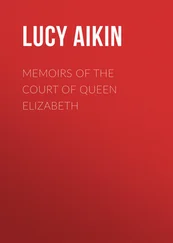Edward Beesly - Queen Elizabeth
Здесь есть возможность читать онлайн «Edward Beesly - Queen Elizabeth» — ознакомительный отрывок электронной книги совершенно бесплатно, а после прочтения отрывка купить полную версию. В некоторых случаях можно слушать аудио, скачать через торрент в формате fb2 и присутствует краткое содержание. Жанр: foreign_antique, foreign_prose, на английском языке. Описание произведения, (предисловие) а так же отзывы посетителей доступны на портале библиотеки ЛибКат.
- Название:Queen Elizabeth
- Автор:
- Жанр:
- Год:неизвестен
- ISBN:нет данных
- Рейтинг книги:5 / 5. Голосов: 1
-
Избранное:Добавить в избранное
- Отзывы:
-
Ваша оценка:
- 100
- 1
- 2
- 3
- 4
- 5
Queen Elizabeth: краткое содержание, описание и аннотация
Предлагаем к чтению аннотацию, описание, краткое содержание или предисловие (зависит от того, что написал сам автор книги «Queen Elizabeth»). Если вы не нашли необходимую информацию о книге — напишите в комментариях, мы постараемся отыскать её.
Queen Elizabeth — читать онлайн ознакомительный отрывок
Ниже представлен текст книги, разбитый по страницам. Система сохранения места последней прочитанной страницы, позволяет с удобством читать онлайн бесплатно книгу «Queen Elizabeth», без необходимости каждый раз заново искать на чём Вы остановились. Поставьте закладку, и сможете в любой момент перейти на страницу, на которой закончили чтение.
Интервал:
Закладка:
It is true that, as far as Elizabeth personally is concerned, her Scotch policy had not always in its execution been as prompt and firm as could be desired. Those who follow it in greater detail than is possible here will find much in it that is irresolute and even vacillating. This defect appears throughout Elizabeth’s career, though it will always be ignored, as it ought to be ignored, by those who reserve their attention for what is worth observing in the course of human affairs.
In her intellectual grasp of European politics as a whole, and of the interests of her own kingdom, Elizabeth was probably superior to any of her counsellors. No one could better than she think out the general idea of a political campaign. But theoretical and practical qualifications are seldom, if ever, combined in equal excellence. Not only are the qualities themselves naturally opposed, but the constant exercise of either increases the disparity. Her sex obliged Elizabeth to leave the large field of execution to others. Her practical gifts therefore, whatever they were, deteriorated rather than advanced as she grew older. In men, who every day and every hour of the day are engaged in action, the habit of prompt decision and persistence in a course once adopted, even if it be not quite the best, is naturally formed and strengthened. It is a habit so valuable, so indispensable to continued success, that in practice it largely compensates for some inferiority in conception and design. Elizabeth’s irresolution and vacillation were therefore a consequence of her position – that of an extremely able and well-informed woman called upon to conduct a government in which so much had to be decided by the sovereign at her own discretion. The abler she was, the more disposed to make her will felt, the less steadiness and consistency in action were to be expected from her. As the wife of a king, upon whom the final responsibility would have rested – her inferior perhaps in intellect and knowledge, but with the masculine habit of making up his mind once for all, and then steering a straight course – she would have been a wise and enlightened adviser, not afraid of consistently maintaining principles, when the time, mode, and degree of their application rested with another. As it was, Cecil and other able statesmen who served her had not only to take their general course of policy from their mistress – a wise course upon the whole, wiser sometimes than they would have selected for themselves – but they were embarrassed, in their loyal attempts to steer in the direction she had prescribed, by her nervous habit of catching at the rudder-lines whenever a new doubt occurred to her ingenious mind, or some private feeling of the woman perverted the clear insight of the sovereign.
The rivalry between France and Spain had hitherto been the safety of England. Nothing but reasons of religion could bring those two powers to suspend their political quarrel. This danger seemed to be averted for the moment by the temporary ascendant of the Politiques after the death of Francis II. But the fanaticism of both Catholics and Huguenots was too bitter, and the nobles on both sides were too ambitious, to listen to the dictates of reason and patriotism. The immense majority of the nation, except in some districts of the south and south-west, was profoundly Catholic. The Huguenots, strongest amongst the aristocracy and the upper bourgeoisie, daring and intolerant like the Calvinists everywhere, had no sooner received some countenance from Catherine than they began to preach against the mass, to demand the spoliation of the Church, the suppression of monasteries, the destruction of images, and the expulsion of the Guises. Where they were strong enough they began to carry out their programme. The Guises, on the other hand, forgetting the glory they had won in the wars against Spain, were soliciting the patronage of Philip, and urging him to put himself at the head of a crusade against the heretics of all countries. To this appeal he replied by formally summoning Catherine to put down heresy in France. An accidental collision at Vassy, in which a number of Huguenots were slain, brought on the first of those wars of religion which were to desolate France for the next thirty years (March 1562). Both factions, equally dead to patriotism, opened their country to foreigners. The Guises called in the forces of Spain and the Pope. Condé applied to Elizabeth and the Protestant princes of Germany.
It was necessary to give the Huguenots just so much help as would prevent them from being crushed. Aggressive in appearance, such interference was in reality legitimate self-defence. But unfortunately neither Elizabeth nor her Council had forgotten Calais, and they extorted from Condé the surrender of Havre as a pledge for its restoration. In the case of Scotland they had come, as we have seen, to recognise that to establish a permanent war by holding fortified posts on the territory of another nation is poor statesmanship. The possession of Calais was of little military value as against France. It is true that it would enable England to make sea communication between Spain and the Netherlands very insecure, and would thus give Philip a powerful motive for desiring to stand well with this country. But such a calculation had less weight with Englishmen at that moment than pure Jingoism – the longing to be again able to crow over their French enemy.
The occupation of Havre (October 1562) gave to the Huguenot cause the minimum of assistance, and brought upon it the maximum of odium. A hollow reconciliation was soon patched up between the rival factions (March 1563), and Elizabeth was summoned to evacuate Havre. She refused, loudly complaining of the Huguenots for deserting her. She “had come to the quiet possession of Havre without force or any other unlawful means, and she had good reason to keep it.” Up to this time the fiction of peace between the two nations had been maintained. It was now open war. It is only fair to Elizabeth to say that all her Council and the whole nation were even hotter than she was. The garrison of Havre, with their commander Warwick, were eager for the fray. They would “make the French cock cry Cuck,” they would “spend the last drop of their blood before the French should fasten a foot in the town.” The inhabitants were all expelled, and the siege began, Condé as well as the Catholics appearing in the Queen-mother’s army. After a valiant defence the English, reduced to a handful of men by typhus, sailed away (July 28, 1563). Peace was concluded early in the next year (April 1564). Elizabeth did not repeat her mistake. Thenceforward to the end of her reign we shall find her carefully cultivating friendly relations with every ruler of France.
CHAPTER IV
ELIZABETH AND MARY STUART: 1559-1568
WHEN Elizabeth mounted the throne, it was taken for granted that she was to marry, and marry with the least possible delay. This was expected of her, not merely because in the event of her dying without issue there would be a dispute whether the claim of Mary Stuart or that of Catherine Grey was to prevail, but for a more general reason. The rule of an unmarried woman, except provisionally during such short interval as might be necessary to provide her with a husband, was regarded as quite out of the question. It was the custom for the husbands of heiresses to step into the property of their wives and stand in the shoes, so to speak, of the last male proprietor, in order to perform those duties which could not be efficiently performed by a woman. Elizabeth’s sister, while a subject, had no thought of marrying. But her accession was considered by herself and every one else to involve marriage. If the nobles of England could have foreseen that Elizabeth would elude this obligation, she would probably never have been allowed to mount the throne. Her marriage was thought to be as much a matter of course, and as necessary, as her coronation.
Читать дальшеИнтервал:
Закладка:
Похожие книги на «Queen Elizabeth»
Представляем Вашему вниманию похожие книги на «Queen Elizabeth» списком для выбора. Мы отобрали схожую по названию и смыслу литературу в надежде предоставить читателям больше вариантов отыскать новые, интересные, ещё непрочитанные произведения.
Обсуждение, отзывы о книге «Queen Elizabeth» и просто собственные мнения читателей. Оставьте ваши комментарии, напишите, что Вы думаете о произведении, его смысле или главных героях. Укажите что конкретно понравилось, а что нет, и почему Вы так считаете.












